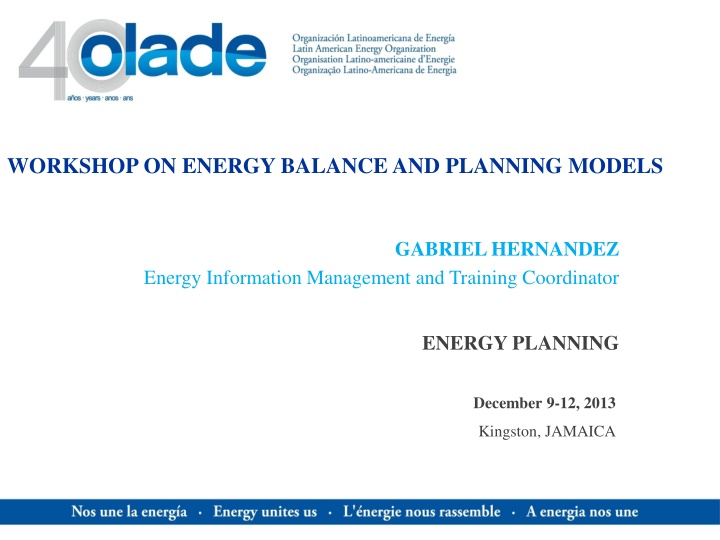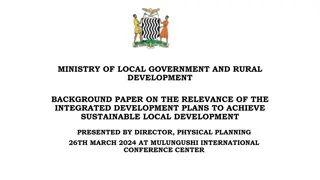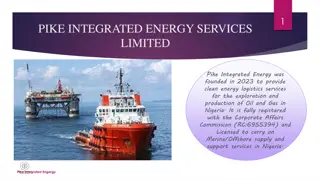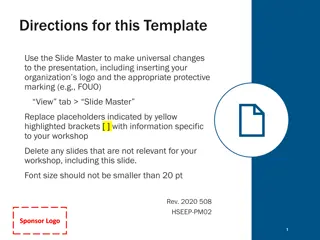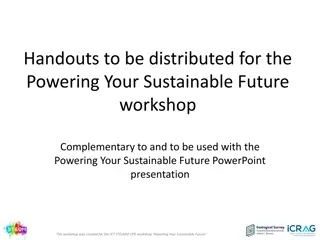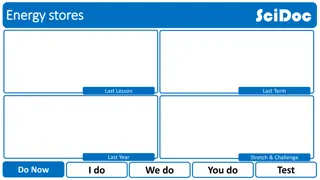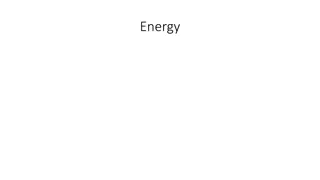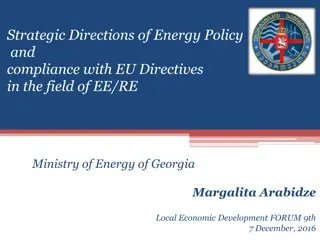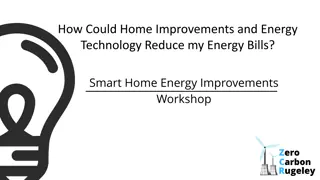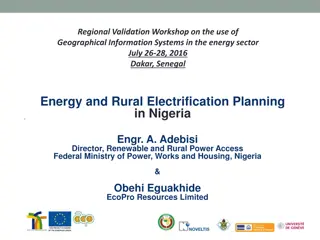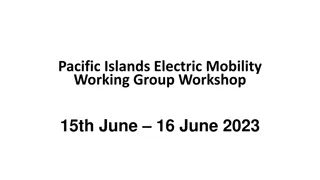Integrated Energy Planning Workshop Overview
This content provides insights into an Energy Balance and Planning Models workshop conducted by Gabriel Hernandez, focusing on the planning process, energy planning principles, and integrated energy planning. It covers topics such as defining objectives, collecting information, scenario visualization, forecasting, plan implementation, and evaluation. The workshop emphasizes the design and implementation of energy plans to meet demand economically, improve efficiency, utilize local resources, and ensure environmental stability. Various planning approaches such as indicative, binding, sectorial, and integrated energy planning are discussed, along with their components and processes.
Download Presentation

Please find below an Image/Link to download the presentation.
The content on the website is provided AS IS for your information and personal use only. It may not be sold, licensed, or shared on other websites without obtaining consent from the author.If you encounter any issues during the download, it is possible that the publisher has removed the file from their server.
You are allowed to download the files provided on this website for personal or commercial use, subject to the condition that they are used lawfully. All files are the property of their respective owners.
The content on the website is provided AS IS for your information and personal use only. It may not be sold, licensed, or shared on other websites without obtaining consent from the author.
E N D
Presentation Transcript
WORKSHOP ON ENERGY BALANCE AND PLANNING MODELS GABRIEL HERNANDEZ Energy Information Management and Training Coordinator ENERGY PLANNING December 9-12, 2013 Kingston, JAMAICA
PLANNING 4 PLANNING PROCESS Defining Objectives Collecting information Determining where we are with respect to the objectives Visualize possible scenarios Designing alternative plans against different possible scenarios Forecast results for each scenario Selecting or designing the optimal plan Implementing the plan Evaluating results Adjusting the plan
ENERGY PLANNIG Design and implementation of plans that meeti energy demand in the most economical and safe as possible way, improving efficiency, enhancing local resources and replacement of energy sources that cause greater external dependence, maintaining environmental stability and principles of sustainable development Indicative energy planning: Set overall objectives in the medium and long term about energy matrix composition, efficiency targets, technology use, emissions, limited to provide guidance to public and private business initiatives Binding energy planning: mandatory Sectorial energy planning: Focused on the development of a component of the whole energy system Integrated Energy Planning: Applied in coordination to all components of the energy system PLANNING 5
PLANNING 6 INTEGRATED ENERGY PLANNING Electricity Renewables Integrated energy planning Environment Hydrocarbons Other non- renewable Other Sectors
INTEGRATED ENERGY PLANNING PROCESS Statistics Energy balance Energy sector Programs Regulation Policy Economic and energy indicators Objectives Energy diagnosys Resources Facilities Scenarios Forecasting Plans Investment PLANNING 7
